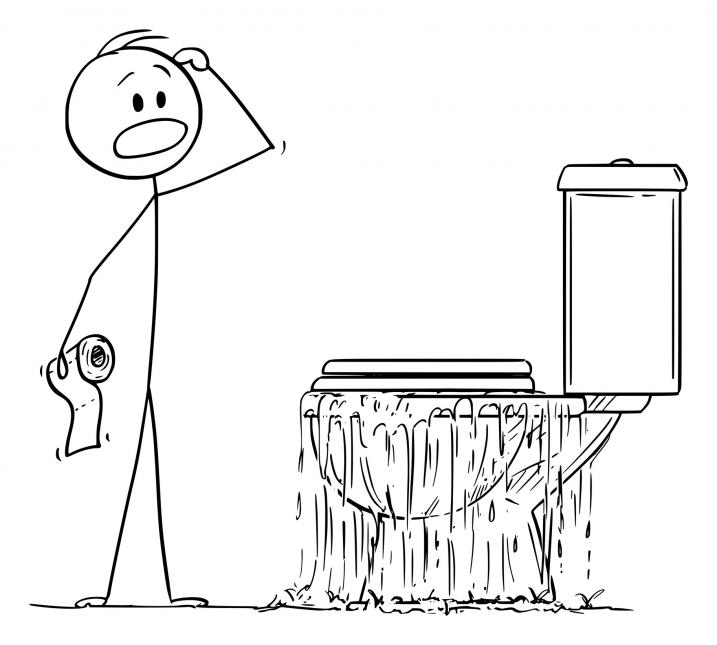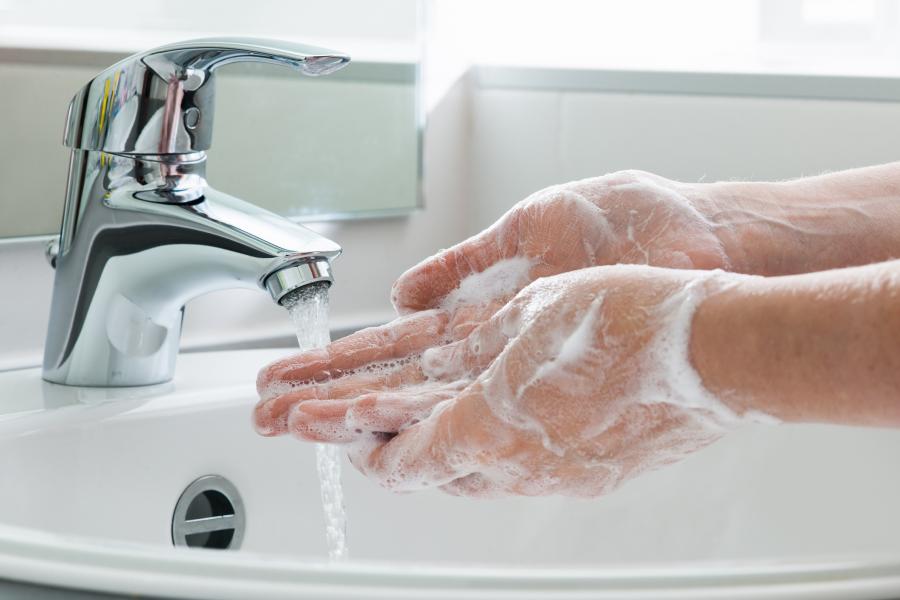Avoid Sewer Emergencies in the Time of COVID-19

With people at home, cleaning more frequently, cooking more regularly, and substituting other items for toilet paper due to shortages, we ask that residents pay close attention to the items you flush down your toilet and pour down your drain.
Wipes of any kind, used for disinfecting, the bathroom, and taking care of kids and babies can have a devastating effect on our sewer system and lead to expensive repairs for homeowners if not disposed of properly. During this time, we ask everyone to pitch in to ensure the reliability of our wastewater removal services. Follow these tips to avoid a nasty backup:
- The myth of flushable wipes. They aren’t flushable! Their fibers do not breakdown and will clog your sewer lateral and our sewer system. Only flush #1, #2, and toilet paper. Everything else goes in the trash.
- FOGs are equally as bad. Fats, oils, and grease, referred to as FOGs, can also create problems. These are fatty, greasy substances such as butter, olive oil, salad dressing, food scraps, coffee grounds, mayonnaise, grease, and gravy. When poured down the drain, they form clumps and can lead to sewer backups. Dispose of FOGs in a separate can, or reusable takeout container and toss in the trash.
- The Fatberg effect. When flushable wipes and FOGs combine, they become huge clogs known as a “fatberg” that form and can cause breaks in home plumbing systems and our sewer infrastructure. Removing a fatberg from the sewer system is a costly expense. When they clog your sewer lateral, it’s a costly repair that the homeowner incurs.
Hand Washing: Clean Hands Save Lives

As part of the regional and national response to the spread of COVID-19, commonly referred to as Coronavirus, diligent handwashing is of critical importance.
Our water treatment program includes filtration and disenfection procedures that are effective in removing viruses. It is safe for drinking, hand washing, and other personal hygiene routines.
The CDC reccommends washing hands with soap and clean water for at least 20 seconds, taking care to scrub the entire hand, including underneath fingernails where germs can also hide. If soap and water are not available, use a hand sanitizer that contains at least 60% alcohol. However, handwashing always remains the better option.
Learn more at cdc.gov/handwashing.


